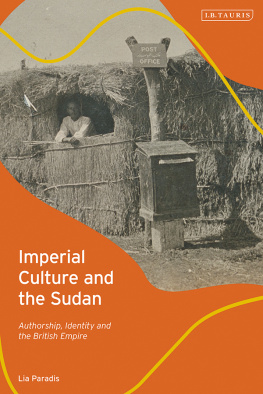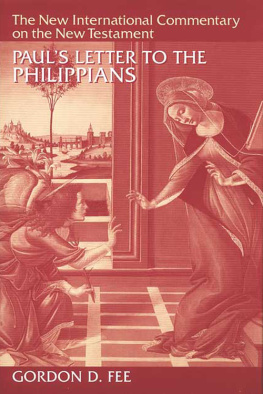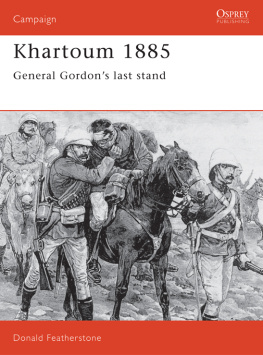Routledge Library Editions: Sudan
Volume 1
Gordon
First published in 1933 by George Routledge and Sons, Ltd.
This edition first published in 2017
by Routledge
2 Park Square, Milton Park, Abingdon, Oxon OX14 4RN
and by Routledge
711 Third Avenue, New York, NY 10017
Routledge is an imprint of the Taylor & Francis Group, an informa business
1933 Pierre Crabits
All rights reserved. No part of this book may be reprinted or reproduced or utilised in any form or by any electronic, mechanical, or other means, now known or hereafter invented, including photocopying and recording, or in any information storage or retrieval system, without permission in writing from the publishers.
Trademark notice: Product or corporate names may be trademarks or registered trademarks, and are used only for identification and explanation without intent to infringe.
British Library Cataloguing in Publication Data
A catalogue record for this book is available from the British Library
ISBN: 978-1-138-20168-2 (Set)
ISBN: 978-1-315-43940-2 (Set) (ebk)
ISBN: 978-1-138-21648-8 (Volume 1) (hbk)
ISBN: 978-1-138-21655-6 (Volume 1) (pbk)
ISBN: 978-1-315-44220-4 (Volume 1) (ebk)
Publishers Note
The publisher has gone to great lengths to ensure the quality of this reprint but points out that some imperfections in the original copies may be apparent.
Disclaimer
The publisher has made every effort to trace copyright holders and would welcome correspondence from those they have been unable to trace.
Gordon
The Sudan and Slavery
By
PIERRE CRABITS
With an engraved portrait of General Gordon
PRINTED IN GREAT BRITAIN BY STEPHEN AUSTIN AND SONS, LTD., HERTFORD
TO MY WIFE
WHO HAS PLAYED AN ACTIVE AND IMPORTANT
PART IN THE WRITING OF THIS BOOK
Contents
T HE critics of Charles George Gordon accuse him of vacillation and of instability of character. While admitting his sincerity, they say that he blew hot one day and cold the next. His partizans refuse to admit that he was inconstant. They take the position that it was the Gladstone Cabinet which manifested a spirit of indecision that was fraught with terrible consequences.
General Gordon was a prolific letter-writer. He also kept a journal which covers the fateful weeks when his life hung in the balance. Many official notes and dispatches deal with his final mission to Khartoum. Lord Cromer has written at some length upon his relations with Gordon during this period.
It has struck me that the best possible way to get at the truth in regard to Gordons proper place in history is to let these letters, this journal, these notes and despatches, and also the comments of contemporaries high in authority, like Lord Cromer, tell their own story.
I have, it is true, drawn my own deductions from this mass of evidence. I have not waited to sum up until all this proof had been put into my pages. I have, on the contrary, punctuated it, as it were, with my own views. I feel, however, that quotation marks make it easy for my reader to distinguish between the testimony and exhibits which are presented, and the remarks and the arguments which deal with them. I trust that my observations may help to bring out the truth. This is all that really interests me. The case upon which Gordon must be judged depends, nevertheless, not upon what I may have had to say or may desire to establish, but upon the record as composed by himself, by Downing Street, and by Lord Cromer.
I feel deeply indebted to all of those who have permitted me to make up this transcript. First and foremost, my thanks are due to King Fuad of Egypt for having given me unrestrained access to the Royal archives of Abdine Palace, Cairo. His Majestys kindness to me is but another evidence of that love for historical truth which is so characteristic of him.
I desire also to express my appreciation of the courtesy shown me by Messrs. Blackie and Son, Ltd., Chatto and Windus, Thomas de la Rue and Co., Ltd., Hutchinson and Co., Ltd., and Macmillan and Co., Ltd., in permitting me to quote from published works which are their copyright, as indicated in the footnotes to this book.
P IERRE C RABITS .
C AIRO , E GYPT .
October, 1932.
Gordon, The Sudan and Slavery
C HAPTER I
Introductory
W HEN the nineteenth century dawned the Sudan was closed to Egypt. The Ptolemies had been dead for nearly two thousand years. Their successors had long since lost control of the Black Country. But when, after the wars of Napoleon, Europe readjusted her maps, Africa found in Muhammad Aly a born leader of men. He took in his own hand the sceptre of the Land of the Pharaohs. He lost no time in widening the frontiers which he had taken over from the Mamelukes.
He believed in law and order. He had his own idea of law and his individual conception of order; but they were sufficiently orthodox to fit into their Levantine setting. He had a sharp sword, a ready wit, a stout son, Ibrahim Pasha, and a doughty son-in-law, the Defterdar. These helped him to carry out his policy of expansion and his theories of statecraft. This Muslim trinity created Modern Egypt. Muhammad Aly was its overshadowing genius. He delegated none of his authority. His rule was personal. His children were efficient instruments wielded by a master mind.
He made his power felt while he was still under the tutelage of Turkey. If Europe had not interfered he would in all probability have occupied Constantinople, and possibly have made Stamboul tributary to Cairo. But at that time the maintenance of the integrity of the Ottoman Empire was deemed essential to the welfare of the Occident. The Powers, therefore, decreed that the militant vassal should remain under the suzerainty of the effete Sultan.
Before the astute Albanian meditated defiance of his liege lord he made sure that his own Egyptian bailiwick was in order. The inland commerce of Egypt had, during the earlier years of his overlordship, suffered great interruptions from the confusion and discord to which the lands south of the first cataract were a prey. The chiefs of certain zones in that vast expanse had formed themselves into what has been described as a singular aristocracy of brigands. They pillaged all the provinces and caravans within their reach, without mercy and without restraint. Civil wars rent asunder the once powerful country of Sennaar. Anarchy prevailed in the Sudan.
Muhammad Aly resolved to put an end to this intolerable condition of affairs. He was no reformer who sought to constrain his neighbours to conform to his tenets. He was a practical statesman, determined to abate a nuisance in a territory which abutted upon his demesnes because he considered that the disorder there prevailing interfered with the commercial expansion of his subjects. Two other motives likewise impelled him to act.
The officers of the Sudan Government responsible for the official publication known as The Anglo-Egyptian Sudan say that gold was doubtless his main object, for he had heard rumours of mines of vast wealth; but we must also give him credit for an honest intention to introduce commerce and civilization into the midst of Negro tribes.










